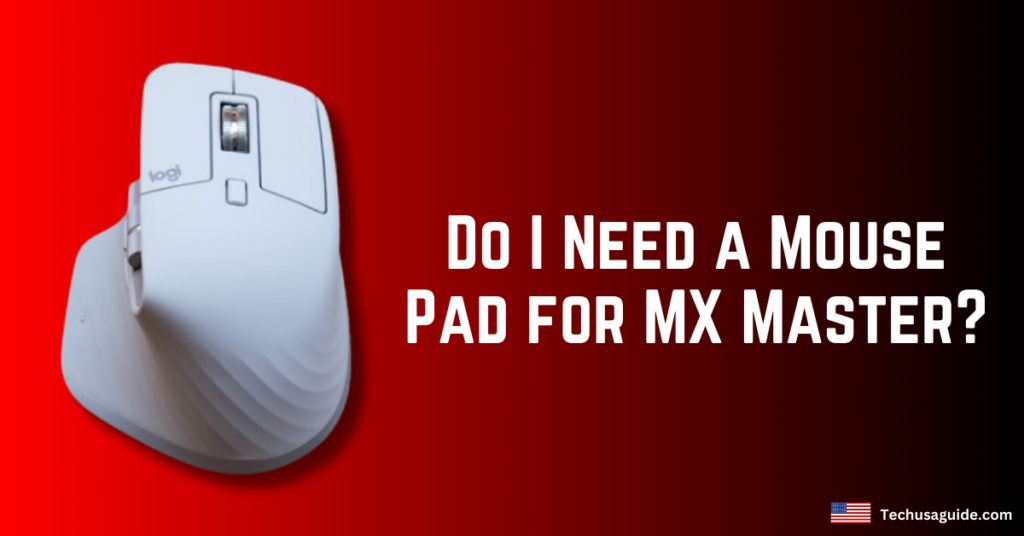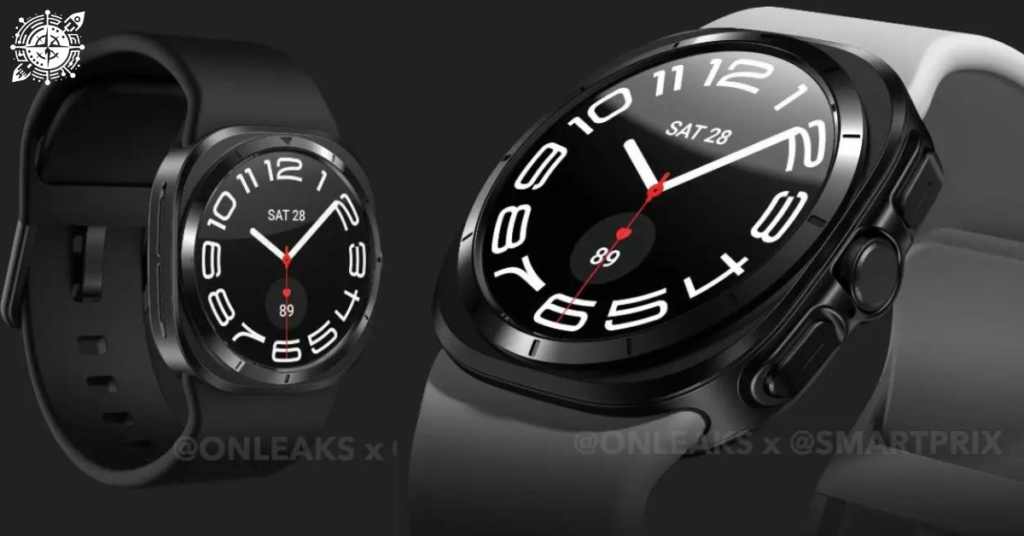It’s important to select the perfect gaming PC to ensure you have the best possible gaming experience. When it comes to choosing components and specifications, it’s easy to feel overwhelmed.
There’s a lot to consider. This guide breaks down every important component of a gaming PC so you can make an informed decision and maximize the performance of your gaming rig.
Key Takeaways:
- Processor (CPU): Choose between AMD and Intel based on what you need; if you want better multitasking, go for more cores.
- Graphics Card (GPU): VRAM is super important, and both NVIDIA and AMD have great options depending on what you want to spend.
- Memory (RAM): Shoot for at least 16GB; faster speeds and lower latency really boost performance.
- Storage: SSDs give you speed, HDDs offer capacity – using both together is the best of both worlds!
- Motherboards: Make sure it’s compatible and keep an eye out for gaming-specific features.
- Cooling Systems: Think about whether air or liquid cooling suits your needs better.
- Power Supply (PSU): Figure out your power needs and go for higher efficiency ratings.
- High Refresh Rate Monitors: Boost your visual experience with a refresh rate of at least 144Hz.
- Network Capabilities: Wired connections usually offer a more stable experience for gaming.
- Audio Systems: Think about getting some good headphones or speakers for a truly immersive experience.
What specs should you look for in a gaming PC?
When it comes to gaming PCs, finding the right one can really level up your gaming experience. You’ll enjoy top-notch graphics and lightning-fast processing speeds.
Additionally, this feature guarantees the longevity of your PC and keeps it compatible with future gaming needs. Well, you’ll have the advantage of playing the latest games without the need for frequent system upgrades.
This will help you save money and avoid unnecessary frustration in the future. Furthermore, choosing a top-notch gaming PC guarantees a reliable performance and the capability to handle demanding tasks such as video editing or software development.
Understanding PC Gaming: Beyond Just Playing Games
Gaming PCs have become incredibly versatile, capable of handling tasks like streaming, video editing, and creating digital content. Grasping the many uses of this versatile tool can assist you in getting the most out of your investment.
Core Components
Processor (CPU): The Heart of Your Gaming Experience
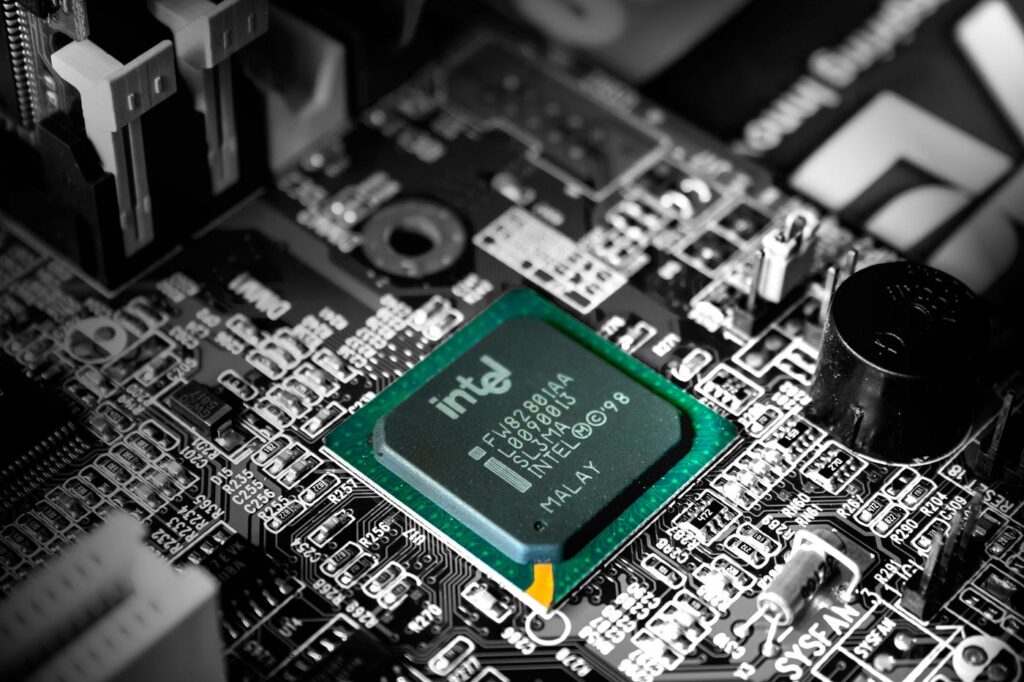
The CPU, also known as the Central Processing Unit, is commonly called the brain of your gaming PC. It takes care of all the calculations and operations, making sure that tasks are carried out efficiently.
When it comes to tasks like running simulations, managing in-game physics, or rendering graphics, the CPU is absolutely essential for keeping performance smooth and responsive. This essential component ensures your system runs smoothly, providing an immersive gaming experience.
Which one should I choose Intel or AMD?
AMD and Intel both have CPUs that are perfect for gaming. AMD Ryzen processors are well-regarded for their ability to handle multiple tasks simultaneously, whereas Intel’s Core series is particularly strong in tasks that require single-threaded performance. Consider your requirements to select the most suitable option.
How many CPU cores do you really need?
When it comes to gaming, a quad-core or hexa-core CPU is typically enough. By the way, if you’re into streaming or doing a lot of multitasking, it might be a good idea to go for an octa-core or higher CPU. It can really come in handy!
Graphics Card (GPU): Rendering Your Victories
The GPU renders images, videos, and animations, making it an essential component for gamers.
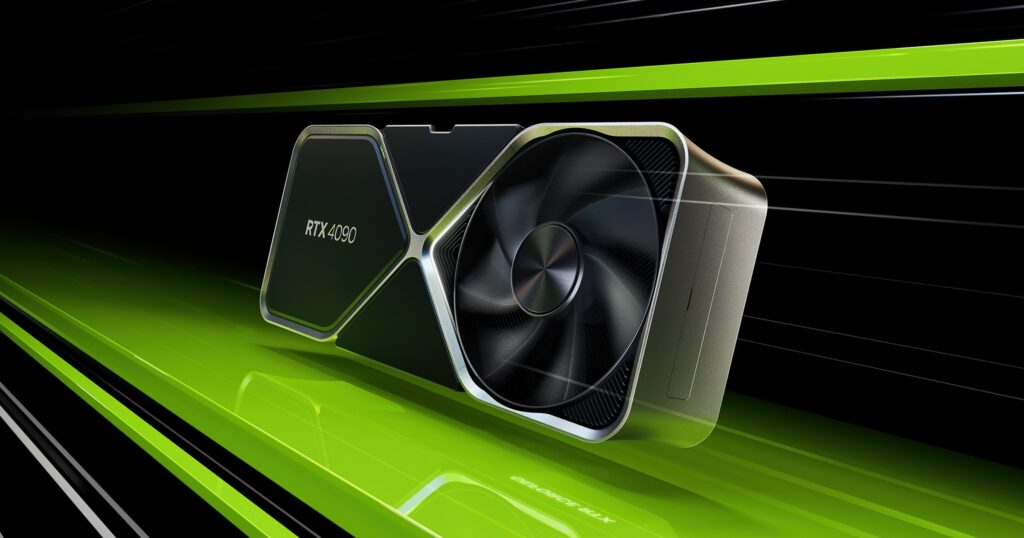
How important is VRAM really?
VRAM, also known as Video RAM, is the memory that the GPU utilizes. Having more VRAM can enhance the texture quality and support higher resolutions. For a smooth gaming experience, it’s recommended to have a minimum of 6GB of VRAM.
NVIDIA vs. AMD: Which is Best for Gaming?
Both NVIDIA and AMD have a great selection of GPUs. Many people tend to lean towards NVIDIA due to its impressive ray tracing and DLSS (Deep Learning Super Sampling) technology, while AMD is known for offering great performance at a reasonable price.
Memory (RAM): The Unsung Hero of Smooth Gameplay
Having enough RAM is essential for optimal performance as it directly impacts loading times and the ability to multitask efficiently.
How much RAM for gaming in 2024?
If you want to have a smooth gaming experience in 2024 and meet the demands of modern games, it’s recommended to have at least 16GB of RAM.
On the other hand, if you’re looking to future-proof your system and handle tasks like streaming, video editing, or running multiple applications at the same time, it might be worth considering an upgrade to 32GB of RAM.
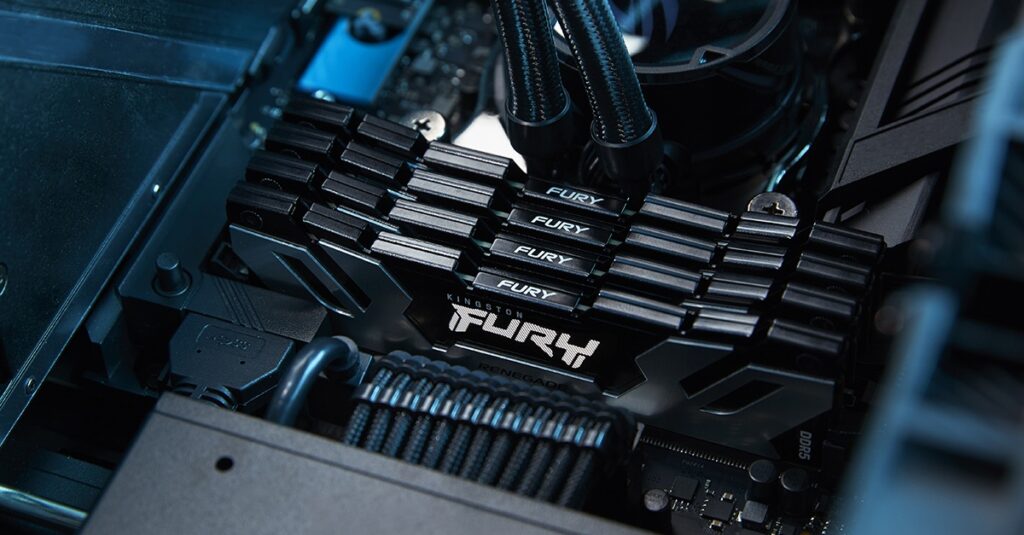
With this extra memory, you’ll enjoy a smoother and more responsive experience, so you can handle demanding tasks without sacrificing performance.
The Impact of Speed and Timing on Performance
Having faster RAM with lower latency can really give your performance a significant boost. When searching for RAM, it’s worth considering DDR4 or DDR5 options that offer high clock speeds and low timings.
Storage Solutions: SSDs vs. HDDs
Storage affects game loading times and overall system responsiveness.
The Importance of Speed in Game Loading
SSDs, also known as Solid State Drives, provide significantly faster read and write speeds in comparison to HDDs, or Hard Disk Drives. This results in reduced game loading times and an overall improvement in performance.
How much storage should a gamer have?
Consider using a mix of solid-state drives (SSD) and hard disk drives (HDD) for optimal performance. Consider using a smaller SSD (500GB-1TB) for your operating system and frequently played games, and opt for a larger HDD (2TB or more) to store other data.
Performance Enhancements
Motherboards: The Backbone of Your Setup
The motherboard connects all your components, making it essential for overall system stability and performance.
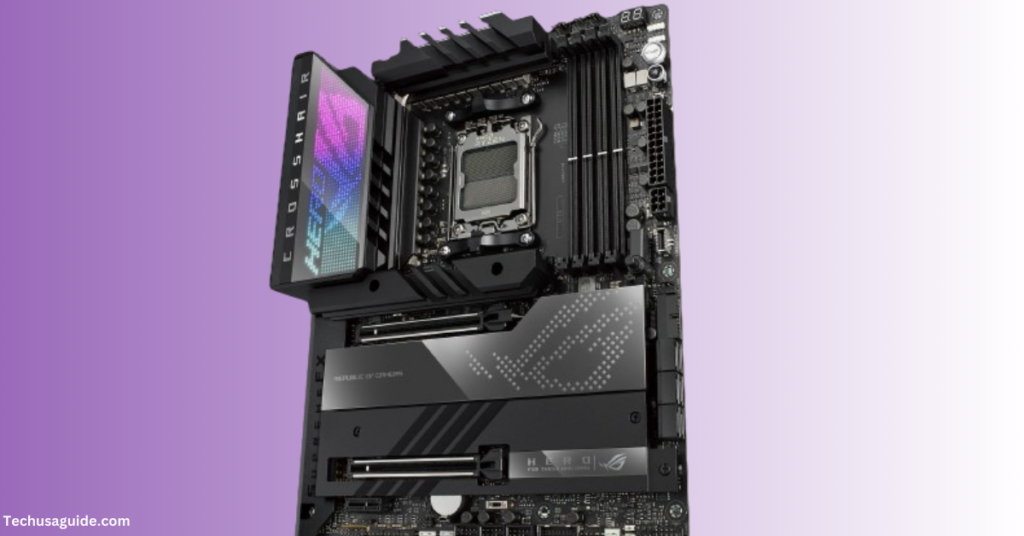
What is the most important feature of a motherboard?
When searching for the right motherboard, it’s important to consider features such as multiple PCIe slots, a high RAM capacity, and a robust VRM (Voltage Regulator Module) for optimal overclocking performance.
Also, make sure the motherboard has plenty of USB ports, supports the latest storage technologies like M.2 and NVMe, and has effective cooling solutions to keep temperatures in check during heavy usage.
Cooling Systems: Keeping Your Cool Under Fire
Effective cooling is crucial for maintaining performance and extending the lifespan of your components.
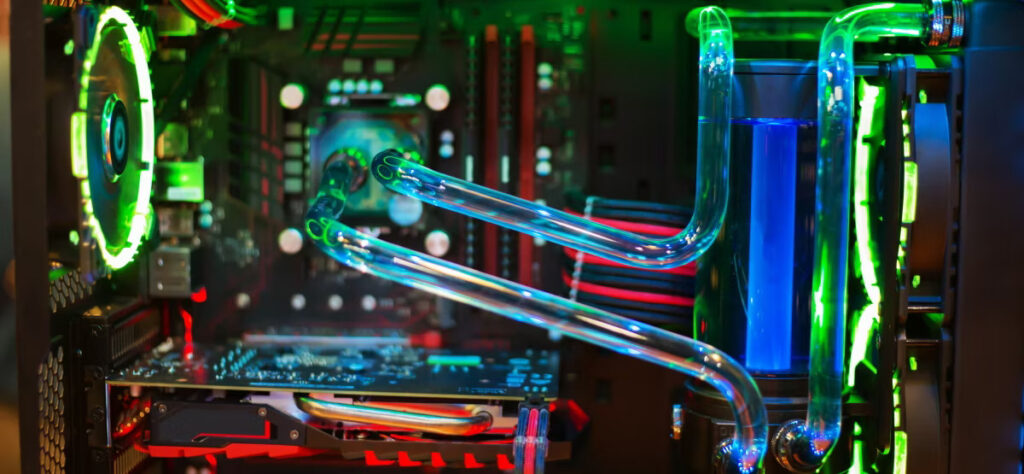
Air Cooling vs. Liquid Cooling Systems
Installing and maintaining air cooling is generally a breeze, while liquid cooling takes performance to the next level, especially for high-end systems.
What do fans do in a gaming PC?
Having good case ventilation with well-placed fans is key to keeping your components cool. These fans ensure a steady airflow, which helps prevent overheating and avoids system instability or hardware damage. Plus, keeping things at the right temperature can boost the performance and lifespan of your components.
Power Supply (PSU): The Lifeline of Your Components
It’s important to have a reliable and efficient PSU since it powers all your components.
Determining Your Power Requirements
Figure out the total wattage of your components, then add a 20-30% buffer. For better accuracy, try using online PSU calculators.
Importance of Efficiency Ratings
Opt for a PSU with an 80 Plus certification for better efficiency. This means lower energy bills and less heat, making it a win-win!
Advanced Specifications
High Refresh Rate Monitors: A Visual Edge
Higher refresh rates offer smoother visuals, giving you a competitive edge in fast-paced games.
what is a good refresh rate for gaming
For gaming, it’s best to go with a refresh rate of at least 144Hz. This will really help cut down on motion blur and make everything look much clearer.
With a higher refresh rate, you’ll experience smoother and more responsive gameplay, giving you an advantage in fast-paced action scenes and competitive gaming environments.
What monitor is best for competitive gaming?
Take a look at monitors from popular brands such as ASUS, Acer, and Dell. These brands are well-known for their high refresh rates and low response times, which are crucial for achieving a seamless gaming experience and top-notch professional performance.
These brands have a wide range of models to suit various needs. Whether you’re into gaming or graphic design or need a dependable display for your business, they’ve got you covered.
Network Capabilities: Ensuring Connectivity
Stable network connections are vital for online gaming.
Is wireless better than wired for gaming?
Although Wi-Fi is usually more convenient, opting for a wired Ethernet connection can provide significant advantages when it comes to gaming on PCs or consoles.
One of the benefits you’ll enjoy is faster speeds, which can greatly improve your gaming experience by minimizing lag. Having lower latency is essential for competitive gaming as it allows for faster response times.
In addition, using a wired connection offers greater reliability as it reduces the chances of signal interference and connection drops. This results in a more seamless and consistent gaming experience.
What is Ping and How Does It Affect Your Games?
Did you know that ping is a way to measure the time it takes for a signal to travel from your PC to the game server and back? Typically, it’s measured in milliseconds (ms).
Having a lower ping can greatly enhance your gaming experience by making gameplay more responsive and reducing lag. Having a high ping can really slow things down and make it tough to react in fast-paced games.
So, it’s really important to have a low ping when you’re playing competitively. It helps keep the game running smoothly and allows for seamless interactions.
Is it better to build your own gaming computer?
No surprise here, but we highly recommend building your own PC. If you’ve done it before, you already know the drill. But for anyone considering a new gaming PC and wondering if building it yourself is worth it, trust us—it definitely is!
Maintenance and Upgrades
How to properly take care of a gaming PC?
Regular maintenance is key to keeping things running smoothly and lasting longer. It helps prevent issues, handles wear and tear, and ensures all parts are in top shape. Taking a proactive approach not only extends the life of your equipment but also boosts its efficiency and reliability.
Regular Cleaning and Why It’s Important
Dust buildup can make your PC overheat and slow down. To avoid these headaches, give your computer a good cleaning every few months. Grab some compressed air and gently blow out the dust from the vents, fans, and other parts. Regular upkeep will keep your PC running smoothly and efficiently.
Software Updates and Optimizations
Make sure to regularly update your operating system, drivers, and gaming software. It helps you get the latest performance boosts and keeps everything secure.
Upgrading Your PC
Upgrading individual components can extend the life of your gaming PC.
How do I know when I should upgrade my PC?
When you notice performance bottlenecks or new, demanding games come out, it’s a good idea to upgrade components like the GPU and RAM. This way, your system can handle the latest graphics and run smoothly. Also, keep your drivers updated and give your hardware a regular clean to maintain top performance.
Conclusion
With this guide, you’re now ready to pick the perfect gaming PC that fits your needs. Whether you build your own or go for a prebuilt system, knowing these key components and specs will help you get the best performance and value for your money. Happy gaming!
FAQs
-
What is the Best CPU for Gaming Currently on the Market?
Right now, the Intel Core i9-12900K and AMD Ryzen 9 5900X are some of the best CPUs for gaming. Both offer great multi-core performance and top-notch clock speeds, so you can enjoy smooth gameplay even with the most demanding titles.
Choosing between them usually boils down to personal preference and what your system needs. -
How Much RAM is Good for Gaming?
For most modern gaming, 16GB of RAM hits the sweet spot. With this much memory, games run smoothly without any annoying stutters, and you can multitask—like running a game while streaming or having a bunch of browser tabs open. Sure, 8GB might work for less demanding or older games, but 16GB gives you a nice cushion for current and future gaming needs. Going up to 32GB might be overkill just for gaming, but it’s great if you’re also into video editing, 3D rendering, or other tasks that eat up a lot of memory.
-
How Much SSD Do I Need for Gaming?
For a gaming rig, a 500GB SSD usually does the trick, giving you quick load times and enough space for your OS, apps, and a few games. But if you’re into a bunch of AAA titles (those can get pretty big), going for a 1TB SSD is a good idea so you don’t have to constantly uninstall and reinstall games. M.2 NVMe SSDs are your best bet for super-fast read and write speeds, making your system feel snappier and cutting down on game loading times. Pairing an SSD with a regular HDD can also give you extra storage without costing too much.
-
Is $1000 Enough for a Gaming PC?
Absolutely! With a $1000 budget, you can build a solid gaming PC that runs most modern games on medium to high settings. By choosing components wisely, you can put together a balanced system with a strong CPU, a decent GPU, enough RAM, and plenty of storage. Keep an eye on sales and bundle deals to stretch your budget even further. Prebuilt systems in this price range are also an option and can be convenient, but building your own usually gets you better performance for the money.
-
Is the i5 Better Than the i7?
When it comes to choosing between the Intel Core i5 and i7, it really boils down to what you need and your budget. If you’re into gaming and daily tasks, the latest i5 models offer great performance at a more wallet-friendly price. They’re perfect for gamers who don’t do much of the heavy lifting with their computers.
But if you’re looking for a bit more oomph, the i7 has higher clock speeds and more cores and threads, which is awesome not just for gaming but also for streaming, video editing, and multitasking. If your budget allows and you juggle a lot of demanding tasks, going for the i7 could be a smart move.
More From Tech USA Guide:
- How do I get Fortnite on the Nintendo Switch?
- Lenovo IdeaPad Flex 5i 14 Review (2024)
- Top 10 Best Mechanical Keyboards 2024
- Oppo Find X7 Ultra Review: Camera, Display and More
- Which is the best Tozo earbuds currently?
- How to stop AirPods from falling out of your ears?
- Samsung Galaxy Watch 7 – News, Price, Release Date, Specs



